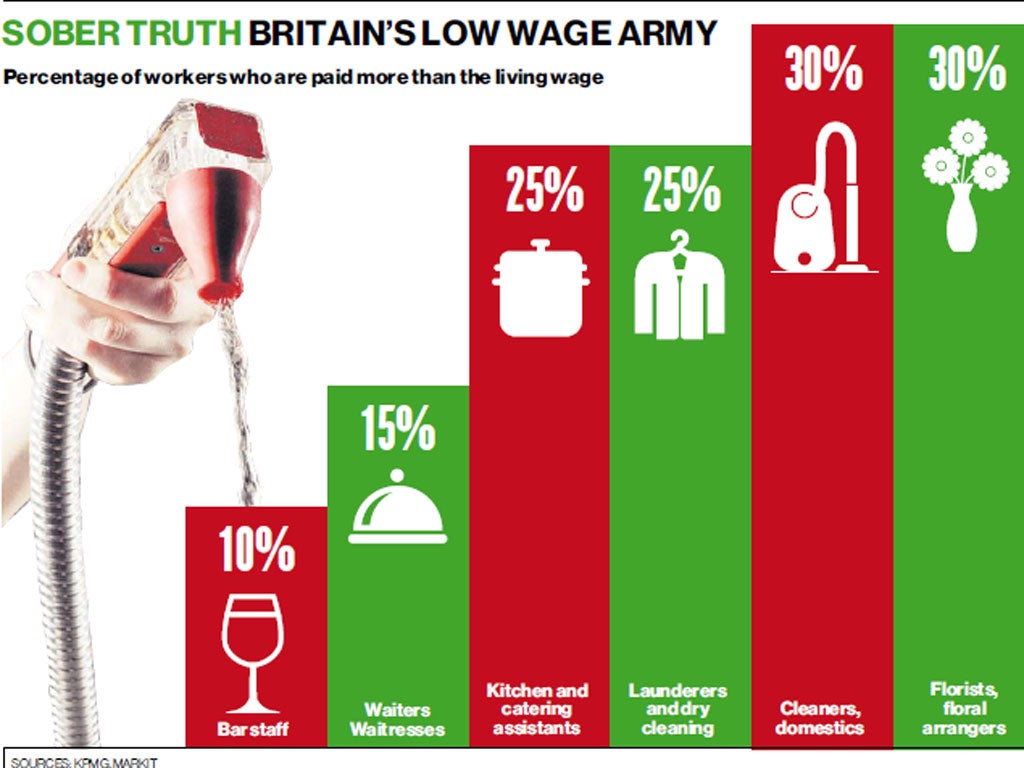Ed Miliband and Boris Johnson support the Living Wage. Will Whitehall and big firms dare to follow?
A Living Wage encourages people into work, reduces the burden on the taxpayer, and is an effective form of redistribution without recourse to the State. What's not to like?

Today’s report by KPMG sets out the scale of the national crisis of working poverty. Living Wage Week, starting next Monday, will showcase the success of the simplest and best solution: pay people enough to live. And the arguments are compelling.
Behind today’s 4.28m statistic of those working for less than a Living Wage are countless human stories of hardworking mums and dads doing two or three jobs to make ends meet. This leaves children with no-one to help with homework or look after them of an evening. Read wasted potential and community turmoil. These were the stories that led London Citizens to launch the campaign in 2001. Now every single one of the more than 15,000 people lifted onto a Living Wage has a story to tell of the impact this has had on them and their families. Amin Hussein, cleaner at Queen Mary University, was able to leave his second job and start an award-winning charity for Somali young people.
The second argument is that receiving a decent Living Wage means people like Amin start working harder and being more loyal. Barclays reported a retention rate of 92% for their cleaning staff compared to 35% industry-wide rates. Better loyalty, more training, better productivity all contribute to consistent reports from employers that Living Wage makes business sense and is financially achievable.
If you don’t really care that people can work hard and get paid enough to live, and aren’t bothered that companies can benefit from a more productive workforce, then you may still be interested that there is substantial tax-payer benefit to be had. When large companies like Aviva go Living Wage, to their great credit, this means thousands of low-paid workers take less tax credits. The Institute for Fiscal Studies estimates there are up to £6bn savings to be made where private sector companies choose to join the growing list of responsible Living Wage Employers.
With Mayor Boris Johnson and Labour Leader Ed Miliband lined up to expound these numerous benefits of the Living Wage next week, it’s time for Whitehall and for successful companies across the country to do the right thing.

Join our commenting forum
Join thought-provoking conversations, follow other Independent readers and see their replies